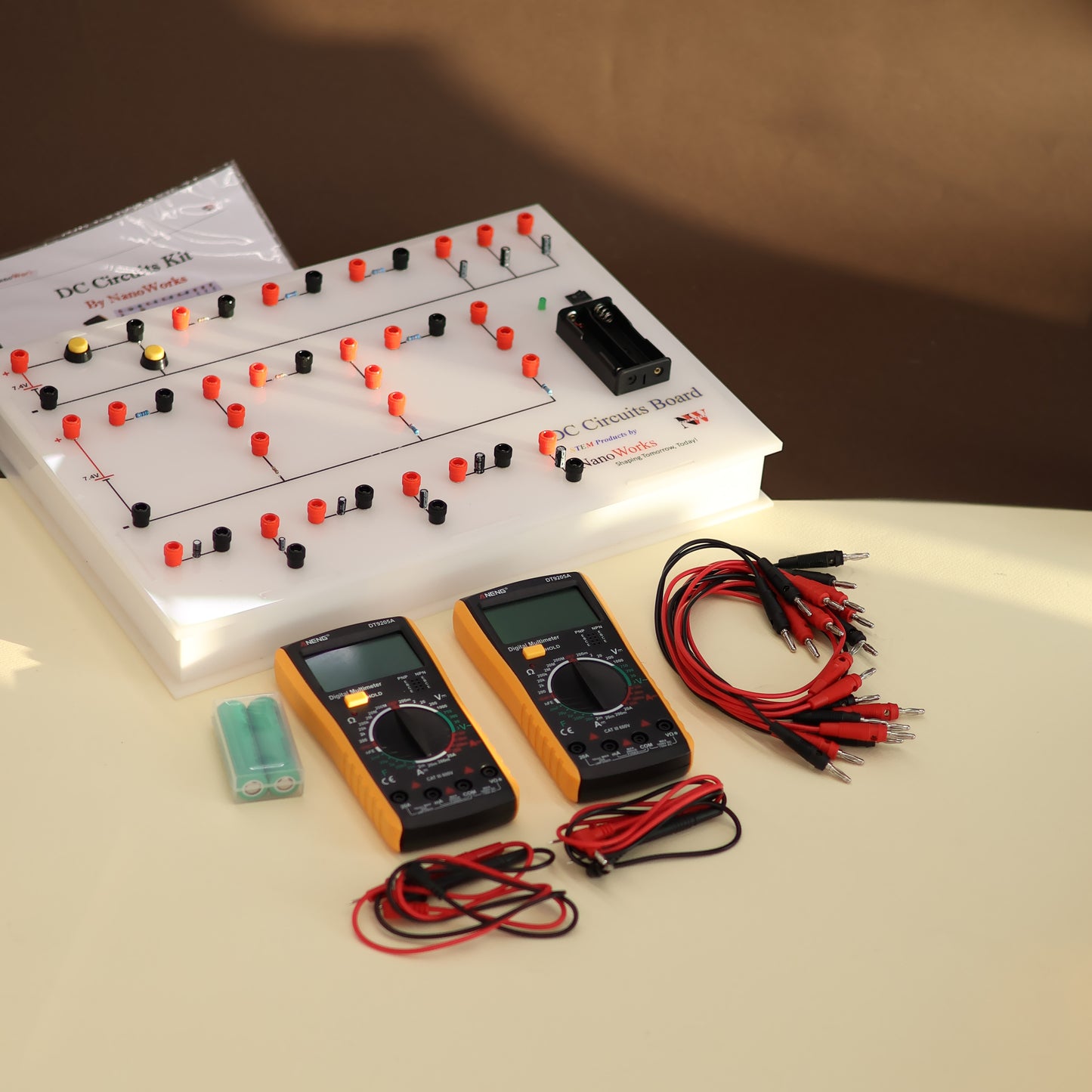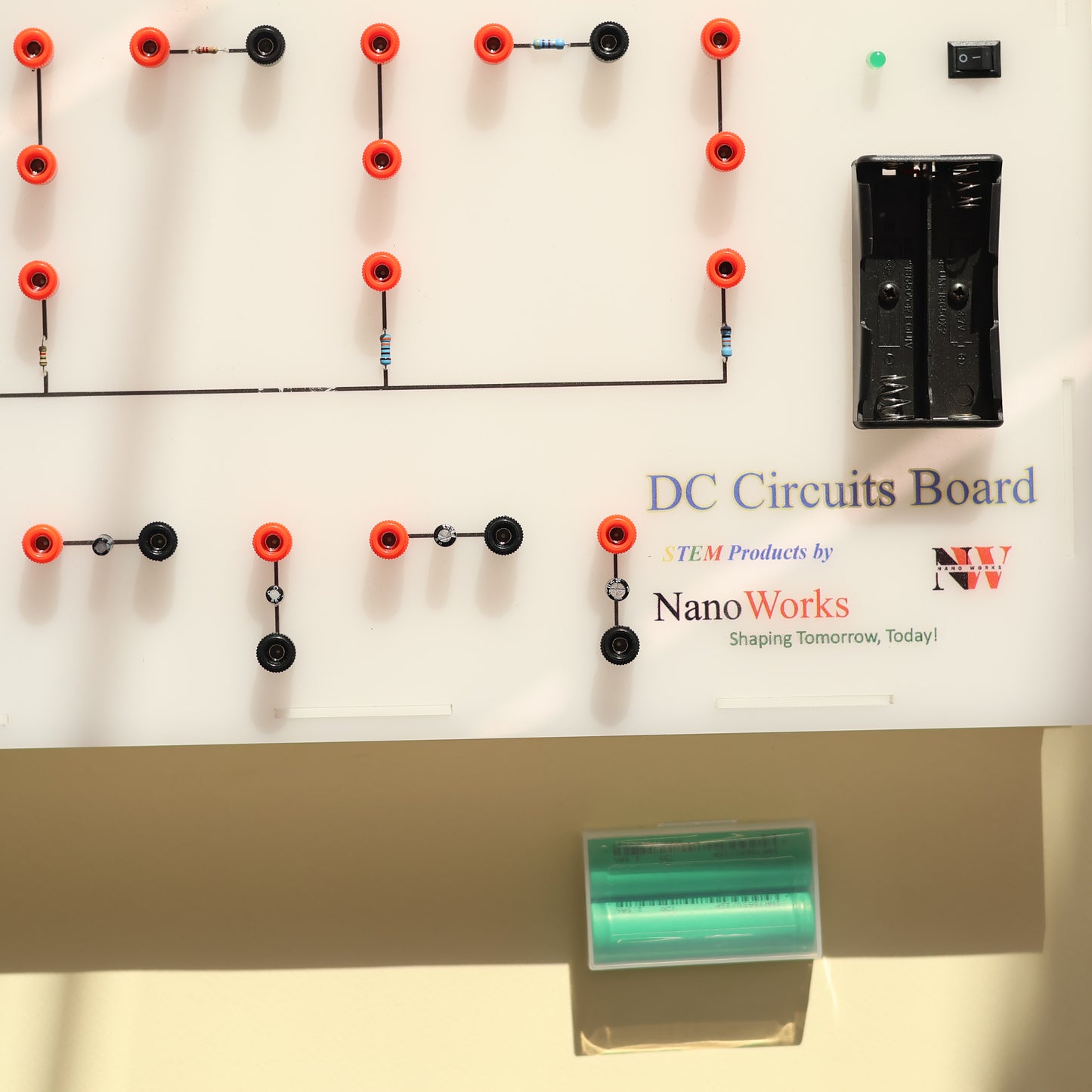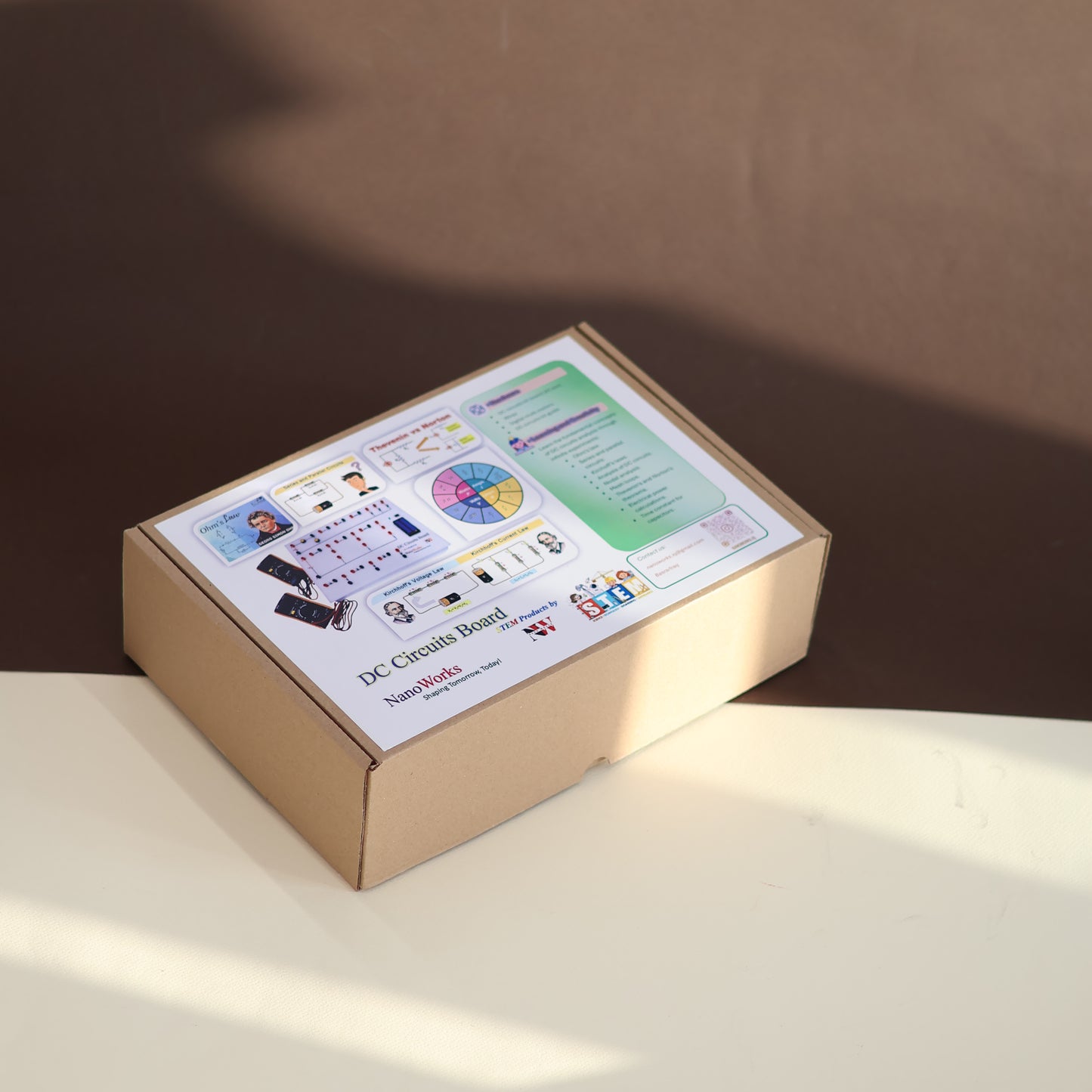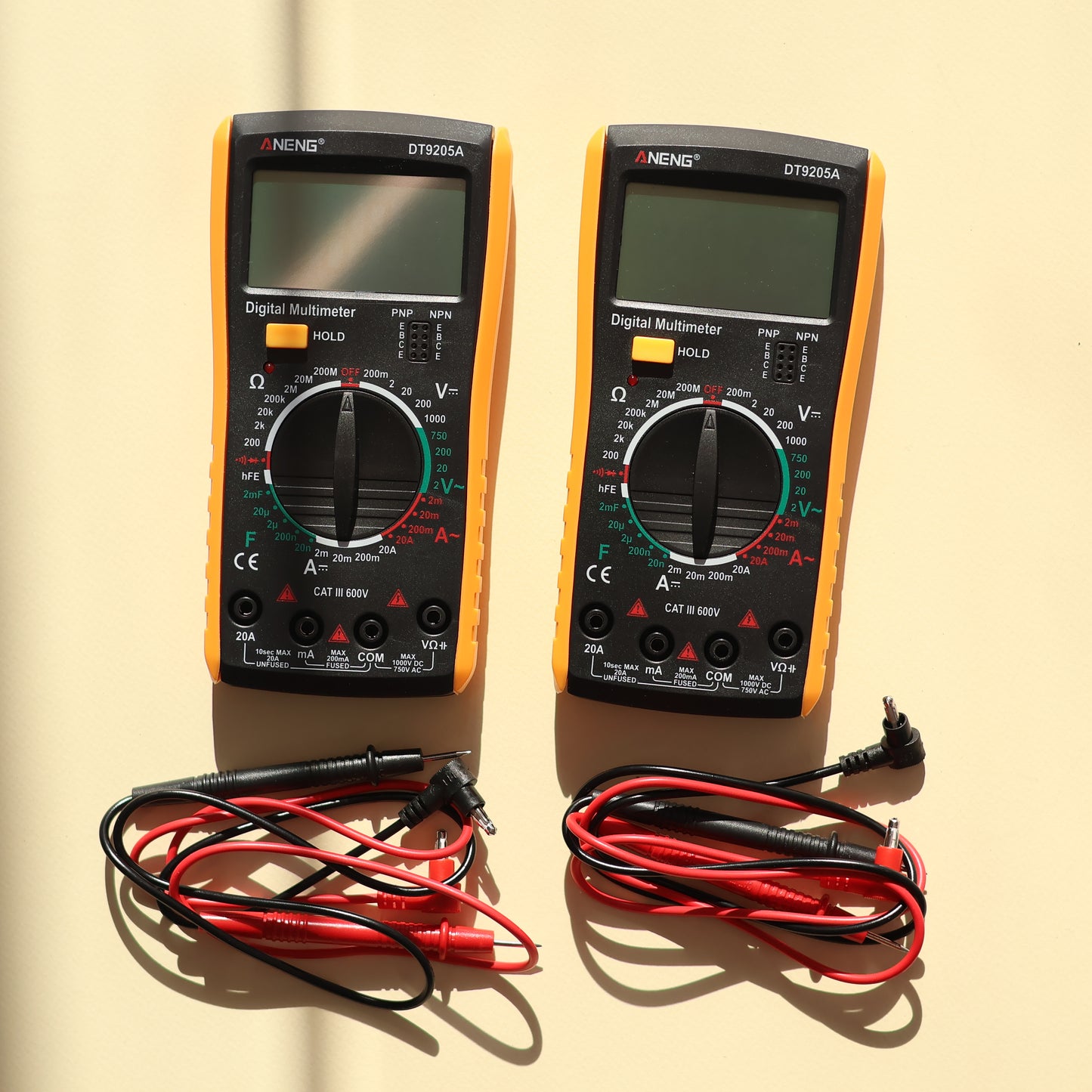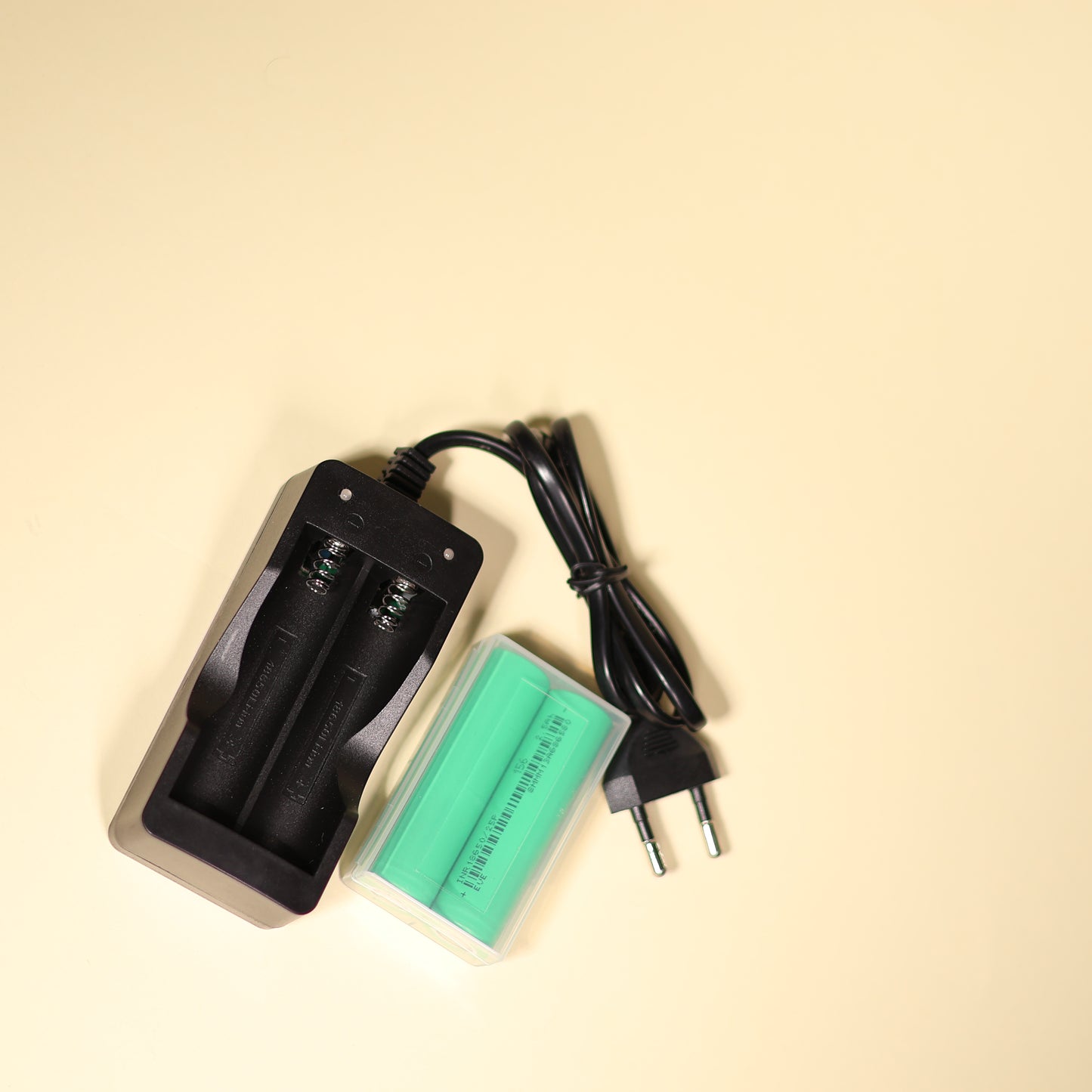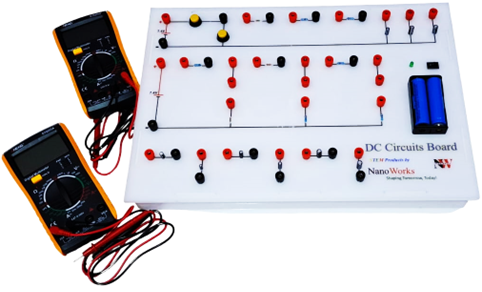1
/
of
7
DC Circuits Kit
DC Circuits Kit
The DC Circuits Kit is meticulously crafted to provide a thorough understanding of the theories and methods related to Direct Current (DC) circuits. It serves as a crucial educational resource, enabling both students and educators to explore, analyse, and experiment with DC circuits, effectively linking theoretical knowledge with practical applications.
Key Features:
- Comprehensive DC Circuit Analysis: The kit includes all fundamental principles and techniques necessary for analysing DC circuits, providing learners with a deep and practical understanding of these concepts.
- Educational Alignment: The syllabus of the kit is aligned with the Science curriculum for primary schools and the Physics curriculum for secondary schools, covering all relevant chapters related to DC circuit theory.
Topics Covered in the Kit:
- Basic Concepts of Electricity: Introduction to charge, current, voltage, and resistance.
- Ohm's Law: Understanding the relationship between voltage, current, and resistance in a DC circuit.
- Series Circuits: Analysis of circuits where components are connected end-to-end, allowing current to flow sequentially through each component.
- Parallel Circuits: Exploration of circuits where components are connected across common points, causing the current to divide among different paths.
- Combination Circuits: Study of circuits that combine elements of both series and parallel configurations.
- Kirchhoff's Laws:
- Kirchhoff's Voltage Law (KVL): Understanding how the sum of the electrical potential differences (voltage) around any closed loop is zero.
- Kirchhoff's Current Law (KCL): Exploring how the total current entering a junction equals the total current leaving the junction.
- Power in DC Circuits: Calculation of electrical power in various components of a DC circuit.
- Resistor Networks: Techniques for simplifying complex resistor networks to find equivalent resistance.
- Thevenin’s and Norton’s Theorems: Methods for simplifying circuits to make analysis more straightforward.
- Capacitors in DC Circuits:
- Series Connection of Capacitors: When capacitors are connected in series, the total capacitance is reduced. The equivalent capacitance (Ceq) can be calculated using the formula: 1/Ceq = 1/C1 + 1/C2 + ⋯ + 1/Cn.
- Parallel Connection of Capacitors: When capacitors are connected in parallel, the total capacitance increases. The equivalent capacitance is the sum of all capacitances: Ceq = C1 + C2 + ⋯ + Cn.
- Combined (Series-Parallel) Connection of Capacitors: This method involves both series and parallel connections, and the equivalent capacitance is calculated by applying the formulas for series and parallel circuits as appropriate.
- Capacitor Time Constant in RC Circuits:
- Definition: The time constant (τ) is a measure of the time required for a capacitor to charge or discharge to approximately 63.2% of its maximum voltage.
- Estimation Method: The time constant is calculated as τ = R×C, where R is the resistance in ohms and C is the capacitance in farads. The kit provides experiments to estimate the time constant by measuring the voltage across the capacitor at various time intervals and applying the exponential decay formula: v(t) = Vmax (1 - e^(-t/τ)).
- Practical Application: Students can experiment with capacitors in series, parallel, and combined configurations to observe the effects on the time constant and capacitor behaviour.
Educational Value:
- Primary School Science Modules: The kit thoroughly covers all topics related to DC circuits that are part of the primary school Science curriculum. It introduces young learners to basic electrical concepts and hands-on activities that enhance understanding.
- Secondary School Physics Modules: For secondary school students, the kit aligns with Physics modules that delve deeper into DC circuit theory, including advanced topics like capacitor connections and time constant estimation, preparing students for higher-level studies.
The DC Circuits Kit is an essential tool for enhancing the educational experience, providing students with the knowledge and skills needed to master DC circuit theory, capacitor configurations, and their practical applications across various educational levels.
Share
